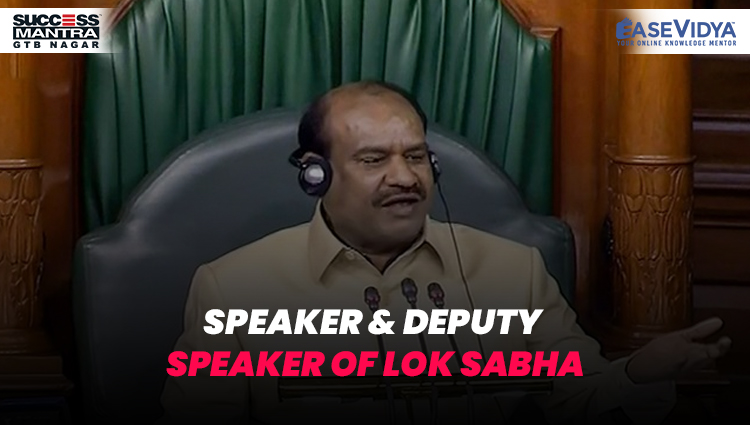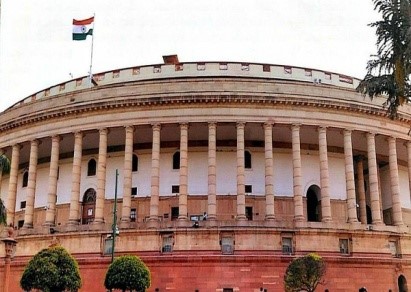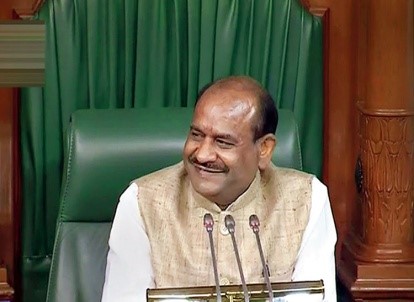
SPEAKER AND DEPUTY SPEAKER OF LOK SABHA
SPEAKER & DEPUTY SPEAKER OF LOK SABHA
Maharashtra has been without a Speaker since February, 2021 while Lok Sabha and several State Assemblies are without a Deputy Speaker. The Constitution provides that the office of the Speaker should never be empty.
ELECTION OF SPEAKER OF A/Q TO THE CONSTITUTION

Criteria: The Constitution of India requires the Speaker to be a member of the House. Although there are no specific qualifications prescribed for being elected the Speaker, an understanding of the Constitution and the laws of the country is considered a major asset for the holder of the Office of the Speaker. Usually, a member belonging to the ruling party is elected Speaker. The process has evolved over the years where the ruling party nominates its candidate after informal consultations with leaders of other parties and groups in the House. This convention ensures that once elected, the Speaker enjoys the respect of all sections of the House.
Voting: The Speaker (along with the Deputy Speaker) is elected from among the Lok Sabha members by a simple majority of members present and voting in the House. Once a decision on the candidate is taken, his/her name is normally proposed by the Prime Minister or the Minister of Parliamentary Affairs.
Term of Office of the Speaker: The Speaker holds Office from the date of his/her election till immediately before the first meeting of the next Lok Sabha (for 5 years). The speaker once elected is eligible for re-election. Whenever the Lok Sabha is dissolved, the Speaker does not vacate his office and continues till the newly-elected Lok Sabha meets.
ROLE AND POWERS OF SPEAKER

- Interpretation: He/She is the final interpreter of the provisions of the Constitution of India, the Rules of Procedure and Conduct of Business of Lok Sabha and the parliamentary precedents, within the House.
- Joint Sitting of Both Houses: He/She presides over a joint sitting of the two Houses of Parliament. Such a sitting is summoned by the President to settle a deadlock between the two Houses on a bill.
- Adjournment of Sitting: He/She can adjourn the House or suspend the meeting in absence one-tenth of the total strength of the House (called the quorum).
- Casting Vote: The speaker does not vote in the first instance but in the case of a tie; when the House is divided equally on any question, the Speaker is entitled to vote. Such a vote is called a Casting Vote, and its purpose is to resolve a deadlock.
- Money Bill: He/She decides whether a bill is a money bill or not and his/her decision on this question is final.
- Disqualifying Members: It is the speaker who decides the questions of disqualification of a member of the Lok Sabha, arising on the ground of defection under the provisions of the Tenth Schedule. The 52nd amendment to the Indian Constitution vests this power in the Speaker. In 1992, the Supreme Court ruled that the decision of the Speaker in this regard is subject to judicial review.
- Chairing the IPG: He/She acts as the ex-officio chairman of the Indian Parliamentary Group (IPG) which is a link between the Parliament of India and the various parliaments of the world. He also acts as the ex-officio chairman of the conference of presiding officers of legislative bodies in the country.
- Constitution of Committees: The Committees of the House are constituted by the speaker and function under the speaker’s overall direction.
- The Chairmen of all Parliamentary Committees are nominated by him/her. Committees like the Business Advisory Committee, the General Purposes Committee and the Rules Committee work directly under his Chairmanship.
- Privileges of the House: The Speaker is the guardian of the rights and privileges of the House, its Committees and members.
REMOVAL OF THE SPEAKER
Under following conditions, the speaker, may have to vacate the office earlier: If he ceases to be a member of the Lok Sabha. If he resigns by writing to the Deputy Speaker. If he is removed by a resolution passed by a majority of all the members of the Lok Sabha. Such a resolution can be moved only after giving 14 days’ advance notice. When a resolution for the removal of the Speaker is under consideration of the House, he/she may be present at the sitting but not preside.
DEPUTY SPEAKER OF THE LOK SABHA
Election: The Deputy Speaker is also elected by the Lok Sabha from amongst its members right after the election of the Speaker has taken place. The date of election of the Deputy Speaker is fixed by the Speaker (date of election of the Speaker is fixed by the President).
Term of Office and Removal: Like the Speaker, the Deputy Speaker remains in office usually during the life of the Lok Sabha (5 years). The Deputy Speaker may vacate his/her office earlier in any of the following three cases:
- If he ceases to be a member of the Lok Sabha.
- If he resigns by writing to the Speaker.
- If he is removed by a resolution passed by a majority of all the then members of the Lok Sabha.
Such a resolution can be moved only after giving 14 days’ advance notice.
Responsibilities and Powers: The Deputy Speaker performs the duties of the Speaker’s office when it is vacant. He/She also acts as the Speaker when the latter is absent from the sitting of the House. He/She also presides over the joint sitting of both the Houses of Parliament, in case the Speaker is absent from such a sitting. The Deputy Speaker has one special privilege, that is, whenever he/she is appointed as a member of a parliamentary committee, he/she automatically becomes its chairman.
TEST YOURSELF
Q.1 Which of the following decides whether a bill is a money bill or not and his/her decision on this question of money bill is final?
- Speaker of Lok Sabha: ANSWER
- President of India
- Deputy Speaker of Lok Sabha
- None of the above
Q.2 Which of the following given statements is/are incorrect in the reference to the Speaker of Lok Sabha?
- Lok Sabha speaker is elected by the Lok Sabha from amongst its members.
- The date of election of Lok Sabha speaker is fixed by the President of India.
- M. A. Ayyangar was the first Lok Sabha speaker
- I & III follows
- Only III follows: ANSWER
- Only II & III follows
- All of the above
Q.3 Consider the given statements & state which of the following is not the power of the Lok Sabha speaker?
- He can speak and take part in the proceedings of the Lok Sabha on the matter related to his removal from the post.
- To give decision on any dispute related to election of any Lok Sabha member: ANSWER
- To act as the ex officio chairman of the conference of presiding officer of the legislative bodies in the country.
- To decide that which bill is money bill or not.
Q.4 The Salary and allowances of the Lok Sabha Speaker is charged on which of the following funds of Government of India
- Consolidated fund of India: ANSWER
- Contingency fund of India
- Both A & B
- None of the above
Q.5 Consider the given statements & state which of the following statements is/are incorrect in the reference to the above mentioned passage?
- Prime Minister of India presides over a joint sitting of the two Houses of Parliament. Such a sitting is summoned by the President to settle a deadlock between the two Houses on a bill.
- The Speaker holds Office from the date of his/her election till immediately before the first meeting of the next Lok Sabha (for 5 years).
- It is the speaker who decides the questions of disqualification of a member of the Lok Sabha, arising on the ground of defection under the provisions of the 9th Schedule.
- II & III follows
- Only I follows
- Only I & III follows: ANSWER
- None of the above













0 Comment